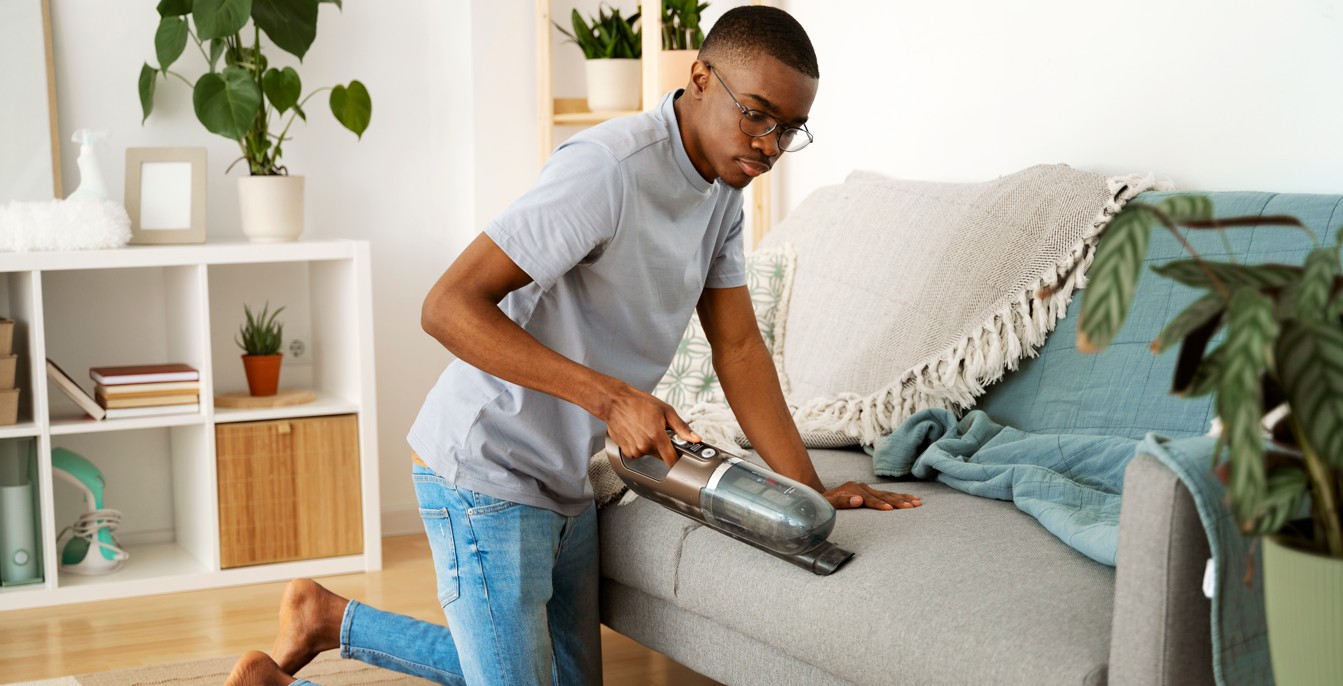Are vacuum cleaners worth it? The ultimate guide to today’s home essential

Advocates argue that the difference between sweeping and vacuuming is more than cosmetic. Brooms tend to redistribute dust, while vacuums capture it completely.
As the world increasingly values convenience, efficiency, and cleanliness, the vacuum cleaner has quietly cemented its place as a household essential.
Once a noisy contraption brought out only during deep cleaning, it is now a year-round fixture in millions of homes. But as technology advances and price tags rise, a question lingers: Are vacuum cleaners truly worth it, or are we just swept up in the hype?
More To Read
- Narok health officials sound alarm on fake cholera vaccination drives amid rising cases
- Turkana County launches digital WASH Map to revolutionise water management
- Why you should always wash your towels separately from clothes
- Somalia water crisis: Funding cuts leave 300,000 without safe water as cholera cases surge
- Your phone is covered in germs: Tech expert explains how to clean it without doing damage
- You’re not cleaning your tiled, wooden floors properly - here’s how to do it right
At its core, a vacuum cleaner is a suction device that removes dust, dirt, pet hair, and debris from floors, carpets, and upholstery. Using a motorised fan, it creates a partial vacuum that draws air—and everything in it—through a filter or dust bag. Modern models go much further:
• Filtration systems (especially HEPA filters) trap fine particles like pollen and dust, improving indoor air quality.
• Brush rollers and nozzles dislodge embedded dirt from carpets and fabric surfaces.
• Cyclonic suction technology separates dust from air, maintaining consistent suction and reducing clogs.
• Smart sensors and mapping (in robotic models) detect dirtier areas, avoid obstacles, and optimise cleaning paths.
The first powered vacuum cleaner appeared in the early 1900s. It was a bulky machine requiring two people to operate—one to handle the nozzle and another to pull the horse-drawn motor. A century later, sleek cordless sticks and intelligent robot vacuums can clean your home while you sleep.
The vacuum’s evolution mirrors our cultural priorities: convenience, hygiene, and technological sophistication. From wartime factories to minimalist apartments, vacuums have become symbols of modern living, where time saved is time earned.
"Ever since I got a vacuum cleaner, it has made it easy to clean up my car, the carpet, sofa, and even my bed. I got mine for Sh27,000, but it is all worth it, because I do not have to call in cleaners; I can do it by myself," Rosemary Mwende told The Eastleigh Voice on Thursday.
Advocates argue that the difference between sweeping and vacuuming is more than cosmetic. Brooms tend to redistribute dust, while vacuums capture it completely. Studies show that regular vacuuming with a HEPA system can reduce indoor dust mites and allergens by up to 80 per cent. For people with asthma, pets, or allergies, the benefits are immediate.
The robot revolution
Robot vacuums have become central to many smart homes. Using infrared sensors, cameras, and AI-driven mapping, they navigate furniture, detect high-traffic zones, and return to charge automatically.
High-end robot vacuums can cost over $1,000 (Sh130,000) and still require regular maintenance of brushes and filters. For some, the convenience outweighs the cost, while others opt for more affordable models at Sh600. For many households, a well-built upright vacuum does the job just as well.
How to choose the right vacuum cleaner
With hundreds of models on the market, choosing the right vacuum can be daunting. Experts recommend considering your space, surfaces, and lifestyle:
Apartments or small spaces: Lightweight stick or handheld vacuums are ideal for tight corners and quick cleanups.
Carpeted homes or pet owners: Corded upright or canister vacuums with strong suction and motorised brush heads work best.
Allergies: Look for HEPA filtration.
Busy households: Robot vacuums maintain cleanliness between deeper cleans. Choose one with smart mapping and app integration for scheduling.
Eco-conscious buyers: Opt for energy-efficient models, washable filters, and recyclable components. Avoid disposable dust bags where possible.
The vacuum industry produces millions of plastic-heavy machines every year. Some manufacturers, like Dyson and Miele, are turning to recyclable parts and longer-lasting motors to reduce waste. Newer startups are designing modular vacuums, built to be repaired, not replaced.
Ultimately, whether a vacuum cleaner is “worth it” depends on your lifestyle and priorities. For pet owners, allergy sufferers, or busy families, the improvement in air quality and convenience can be transformative. For minimalists or those living in small, tidy spaces, a simple broom—or a handheld vacuum starting at Sh6,000—may suffice.
Beyond function, the vacuum cleaner brings a sense of order and cleanliness to our homes. It also symbolises something deeper: our ongoing pursuit of control.
Top Stories Today















































